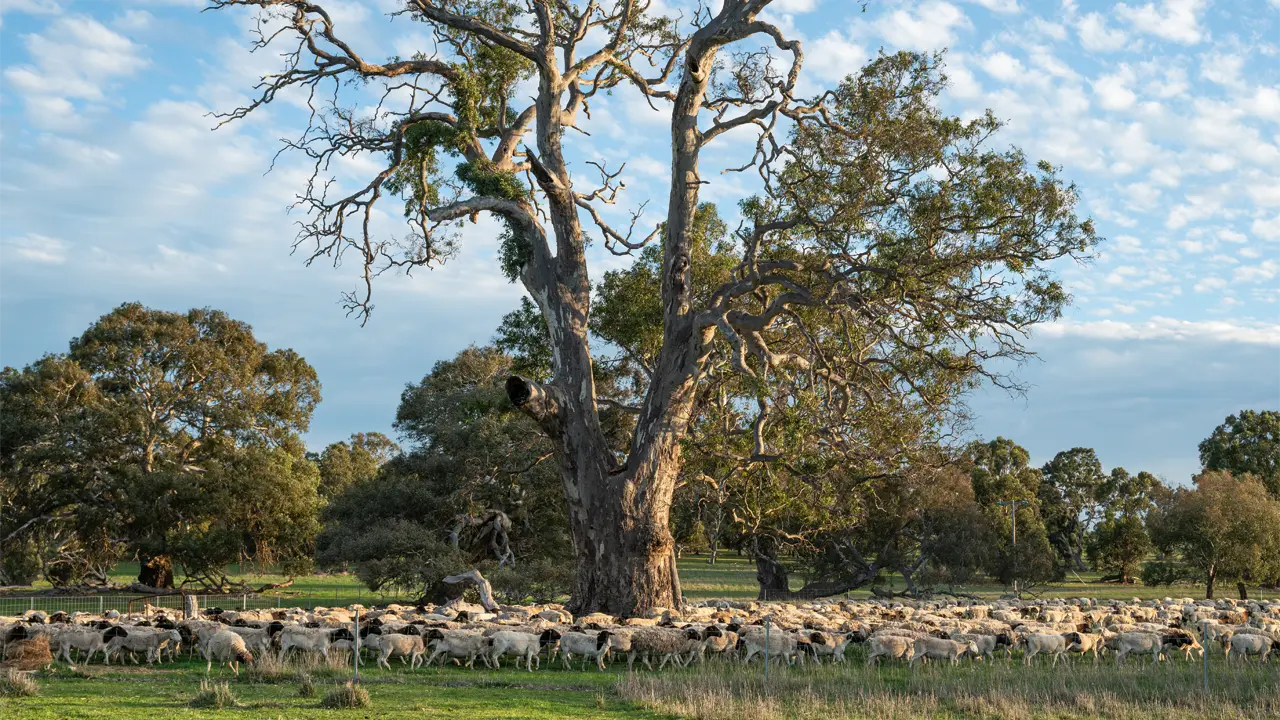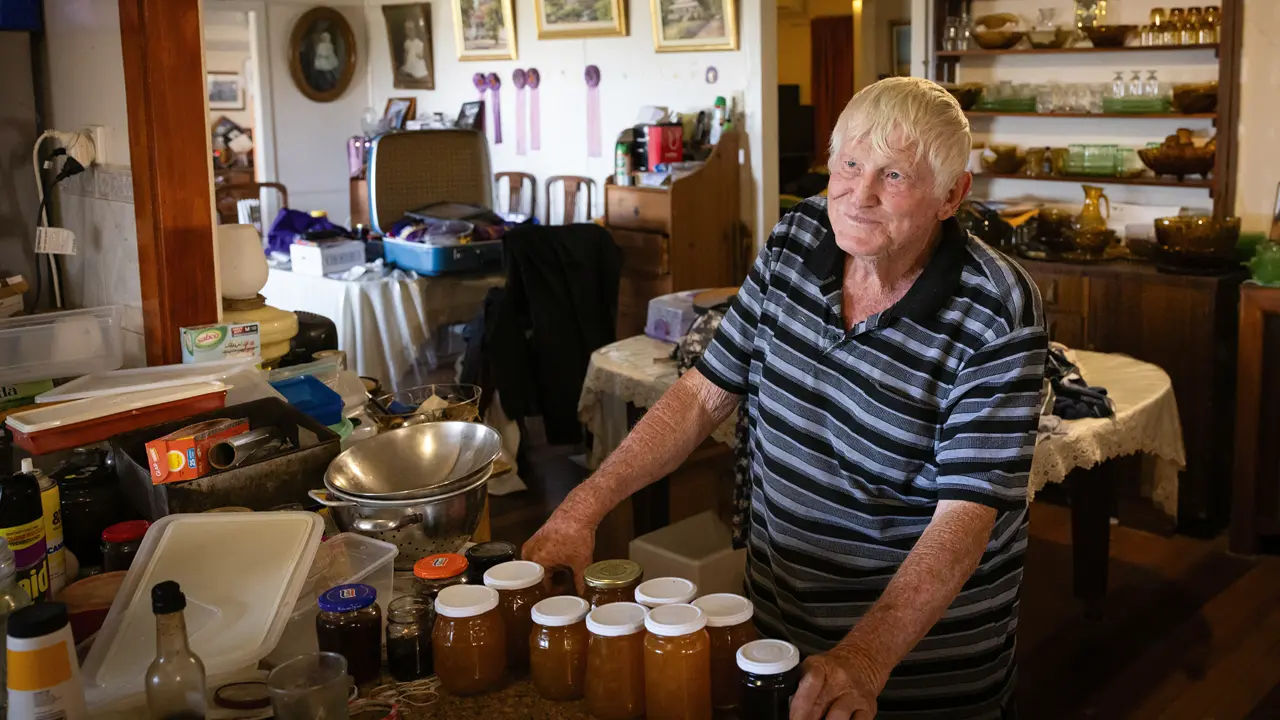During the past 5 years, Celia and Jack Tucker have evolved their western Victorian farm into a productive, regenerative, mixed agriculture operation, with 750ha of crops and 3,000 dorper ewes.
Story + Photos Ken Eastwood
On an undulating Beckom wheat paddock greener than a golf course, a giant R4045 sprayer folds out its huge arms for its first ever run on a Rhynie Pastoral property. A very recent purchase, it will enable timely and targeted applications of compost extract and specific minerals that sap tests reveal each crop needs, rather than constant large applications of urea used by other farmers – one key in the regenerative approach taken by this 1,450ha sheep and cropping enterprise in the Western District.
At the controls of the highly automated, GPS-controlled machine is cropping manager Taylor Leeson, watched from the sidelines by his wife Jayde and excited young son Walt. Taylor was grateful to join the small family team at Rhynie Pastoral 3 years ago.
“When we moved up into this area 15 years ago, none of this regenerative stuff was talked about,” he says. “I was working on high-input farms and I started to think, ‘Is this the way forward for growing our food?’ The huge amount of insecticides and fungicides used. On one farm I was working on they started growing field tomatoes, and you can’t grow them without killing everything except the tomato. I just don’t think it’s a very viable system.
“It’s not an easy transition though – there’s a big paradigm shift in your own head. The end goal is to regenerate a system, so we focus on what’s right and help that, and then everything else just melts away. Instead of saying, ‘The crop’s got insects we’ve got to kill those insects’, we look at why, and focus on getting the plants healthy.”
Much like the beautifully balanced 36.6m boom arms splayed either side of the sprayer, the approach at Rhynie Pastoral is about balance in every part of the operation: from the soils, which are now thriving with nutrient- and water-holding microfungi, to the 50/50 balance between sheep and cropping, a balance between conservation and production, and the treatment of the thousands of dorpers and people. Written into the business plan is an acceptance that massively reduced inputs will mean lower yields, but also to provide an environment that “promotes healthy and happy people”, alongside “a better work life balance” and “a holiday each year”.
Jack and Celia ‘CC’ Tucker took over the management of this 737ha family property, Tullyvallin, and several others in their holdings 5 years ago, and the duo talk candidly about making the switch to regenerative agriculture, even while other nearby family members take a different direction. “When you look on social media, a lot of regenerative agriculture people are working on a small scale and it’s pretty easy to pick a hole in their models if you want to,” Jack says. “But we are full-scale farming.”
This story excerpt is from Issue #157
Outback Magazine: October/November 2024










